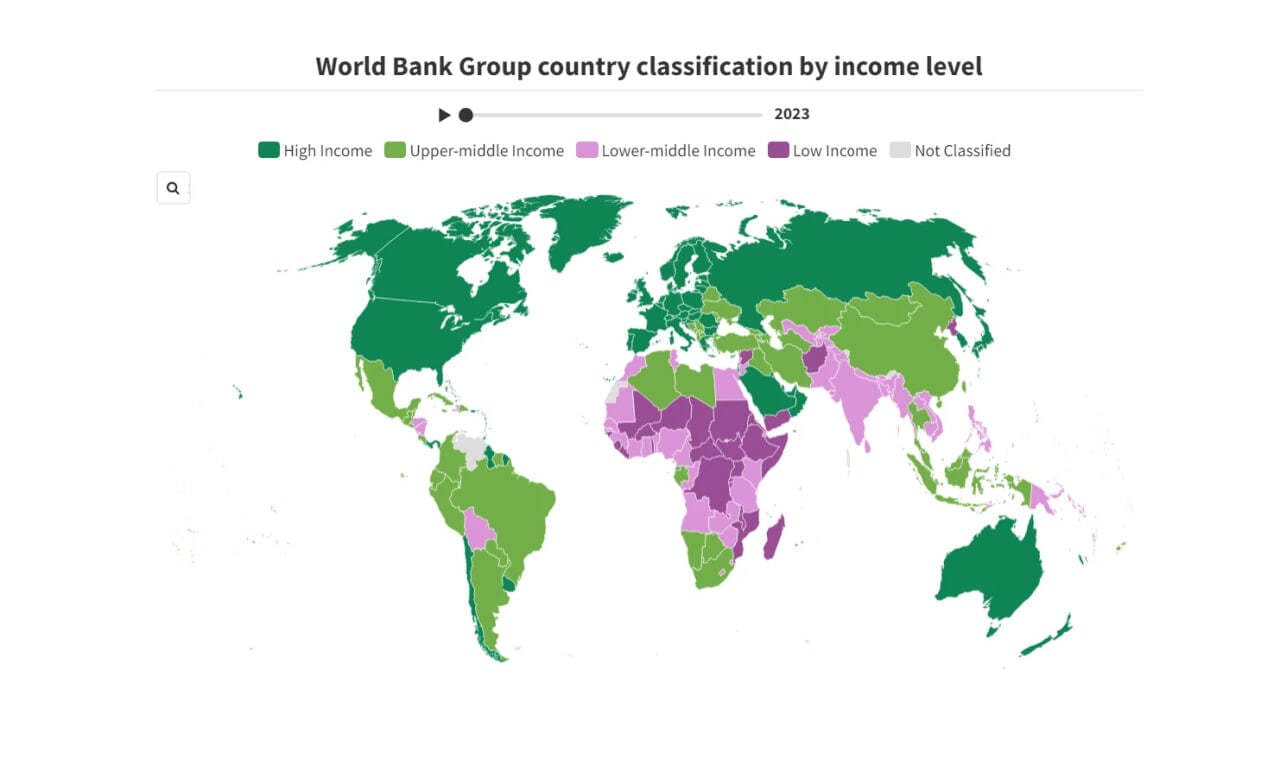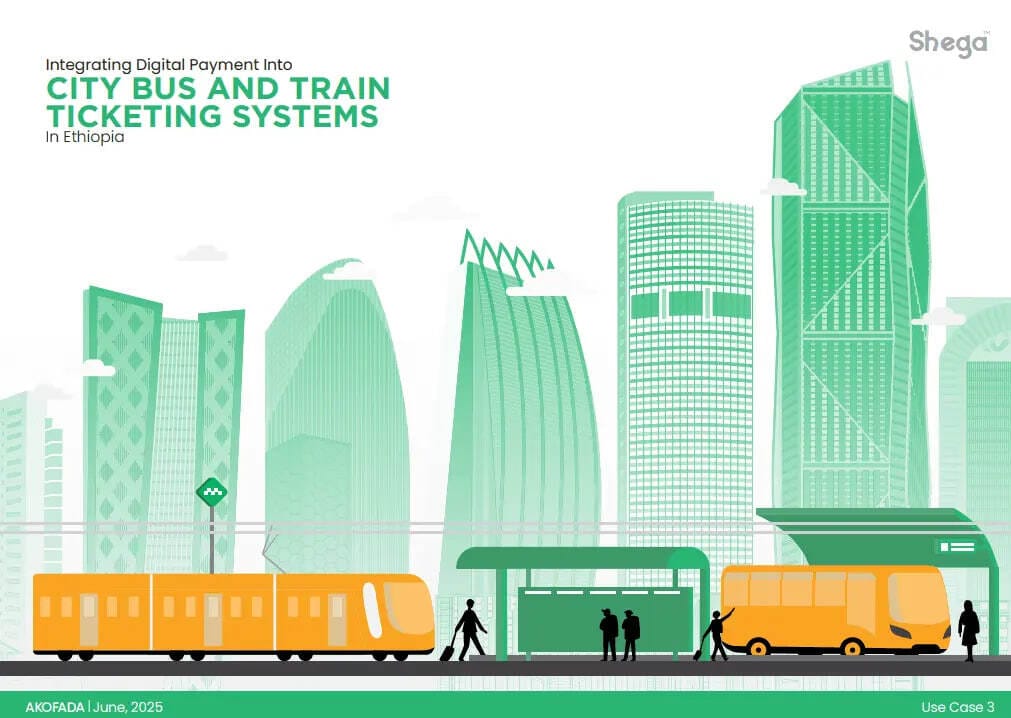
Top Stories of the Week
Mayor Adanech Appoints Yonas Alemayehu to Lead Addis Ababa Mesob One‑Stop Service Center
Ethiopia Doubles Down on AI With 42% Budget Boost to Government Institute
Parliament Set to Review Startup Proclamation After Cabinet Green Light
Ethiopia Opens Treasury Bill Market to Public as Nascent Exchange Begins Executing Trades
Ethiopia Risks Jeopardizing Foreign Financing after World Bank Classification Suspension
Shega is an integrated information, data & intelligence solution provider. We combine trusted media, proprietary datasets, and AI-powered insight to help businesses, investors, and policymakers decode complex markets like Ethiopia and act with confidence.
Tap into our research briefs, interactive data tools, and tailored advice to turn signals into strategy, or partner with us for high-impact audience-engagement campaigns. Let’s explore what we can build together.
Mayor Adanech Appoints Yonas Alemayehu to Lead Addis Ababa Mesob One‑Stop Service Center
Addis Ababa Mayor Adanech Abiebie has appointed Yonas Alemayehu, Director General of the Civil Registration and Residency Services Agency (CRRSA), as the General Director of the Addis Ababa Mesob Digital Government Service, which is currently under formation.
Prime Minister Abiy Ahmed (PhD) inaugurated the federal Mesob center in April of this year, and the center integrates services from 12 federal government agencies. The center is set to provide 41 public services through a paperless, fully digital process.
During his tenure at CRRSA, Yonas led efforts to expand the agency’s digital footprint in the capital. Key initiatives under his leadership included the introduction of Digital Kebele IDs and the rollout of fully automated civil services. The agency also transitioned to a cashless system under the leadership of Yonas.
The appointment also comes on the heels of the Addis Ababa City Council’s approval of a record 350 billion Birr budget for the 2025/26 fiscal year. Read more.
Nib Bank Bets on In-House Super App to Lead Five-Year Strategic Rebound
Nib International Bank S. C, a 26-year-old private commercial bank, has launched a new mobile “super app” that provides unified digital financial services across personal, business, and merchant banking services.
The Bank, which has undergone a significant management reshuffle in recent years, debuted its Nibtera Online service on Saturday at its headquarters in the Sengatera financial district. Read more.
Ethiopia Doubles Down on AI With 42% Budget Boost to Government Institute

Ethiopia’s latest federal budget allocates 1.13 billion Birr to the Ethiopian Artificial Intelligence Institute, a 42% increase from last year. The rise signals the state’s growing stake in a technology reshaping industry globally.
Founded during the pandemic, the Institute (EAII) now sits at the intersection of tech innovation, policy advising, and national security.
Despite a notable budget expansion and pilot success in health tech, the lack of open policy documents and an underdeveloped infrastructure may undermine momentum. Over-reliance on state institutions could also limit innovation and long-term scalability. Read more.
AfDB Spotlights Startling Scale of Illicit Financial Flows in Ethiopia
Ethiopia is losing up to 2.2 percent of its annual GDP growth and between 10 and 30 percent of government revenue to illicit financial flows (IFF), according to data highlighted in the African Development Bank’s (AfDB) 2025 Country Focus Report on Ethiopia. Read more.
Parliament Set to Review Startup Proclamation After Cabinet Green Light
Following unanimous approval by the Council of Ministers on June 5, 2025, Ethiopia’s long-awaited Startup Proclamation has been forwarded to the House of Peoples’ Representatives, marking its final step before becoming law.
In development for several years, the proclamation has gained strong backing from both players in the startup ecosystem as well as government officials. Read more.
What’s on Our Mind
If you’ve spent any meaningful time in Ethiopia’s startup space, you’re likely familiar with the ever-present narrative of “building for impact.” You may even be one who take pride in innovating with social value at the core.
Its true , there’s undeniable dignity in trying to solve real problems for your community. But when “impact” becomes the sole or overriding objective pursued at the expense of market fit, customer demand, and financial sustainability it presents a serious challenge. In too many cases, the push for social value is undertaken against business fundamentals: against demand, against profitability, and against sustainable growth.
This swaying narration has roots in both cultural and systemic factors. On one hand, there’s a strong sense of purpose in trying to build something that matters especially in one’s home country. That motivation, however, can also lead to misplaced priorities, where founders hold onto unproven ideas out of a sense of obligation or emotional attachment, rather than adapting to market realities.
On the other hand, Ethiopia’s early-stage startup funding landscape is largely shaped by development finance and donor-backed grants. According to a 2024 report by Briter Bridges, over 80% of funding for startups in Ethiopia still originates from non-equity sources typically from NGOs and international development agencies. These actors often prioritize solutions aligned with impact metrics, such as healthcare access, financial inclusion, or education, rather than those with proven business models.
This has unintentionally created an incentive structure where founders build to satisfy funding criteria rather than solve validated problems.
This isn’t to suggest that impact and profit are mutually exclusive. But too often, we see a warped interpretation of “impact entrepreneurship” that simply masks the absence of a clear business model.
I recently spoke with a diaspora founder who crossed an Ocean to launch a startup and had invested tens of thousands of dollars into launching a company in Addis. When I asked him how the business would make money, he shrugged: “I’m not doing this for profit. I just want to help Ethiopians.”
While the sentiment seems admirable, the lack of a clear path to revenue is not. It reflects a broader pattern of purpose-driven founders launching ventures without fully engaging with the commercial dimensions of what it means to build a company.
Vendors Worry, Shoppers Shrug as Ethiopia’s Ban on Plastic Bags Looms for Implementation
Ethiopia has joined a growing list of 12 African countries that have banned single-use plastics, but from Merkato to Shola Market, vendors and shoppers claim to be not ready. Will the economy adapt, or will green goals clash with on-ground realities? Read more.
Ethiopia Opens Treasury Bill Market to Public as Nascent Exchange Begins Executing Trades

Ethiopia’s stock exchange has officially opened for trading, marking a major milestone in the long-anticipated economic liberalization agenda.
Launched with live trades of shares in Wegagen Bank and Gadaa Bank, the Exchange also registered government Treasury bills for secondary market trading, a move aimed at broadening access to public debt instruments and shifting deficit financing from central bank credit to capital markets.
Yet while symbolically significant, the Exchange’s success will ultimately depend on structural depth, liquidity, and robust institutional frameworks to build investor confidence and market credibility. Read more.
Enkopa Summit Returns, Championing Deals, Innovation, and Enterprise
Addis Ababa is no stranger to high-level summits, but the Enkopa Summit stands out for a different reason. Unlike the many government-led or development-focused events hosted in the city, Enkopa is a private-sector-driven convening that puts entrepreneurs, innovators, and business leaders at the center.
Returning on October 9–10, the Summit is designed to do more than just spark conversation. It’s about forming real partnerships, unlocking capital, and catalyzing deals. At its last edition, over 1,200 participants and 300 companies came together, resulting in several investment outcomes. This year, the focus sharpens further: Commerce. Technology. Deals. Registration is open, but space is limited. Read more.
Ethiopia Missing from World Bank Income Rankings Despite Deepening Engagement

Ethiopia has been omitted from the World Bank’s latest income classification, with no official explanation provided, placing it among a small number of economies currently listed as “unclassified” in the global institution’s annual update.
The FY26 classification, covering the period from July 2025 to June 2026, categorises economies into four income groups—low, lower-middle, upper-middle, and high—based on gross national income (GNI) per capita calculated using the World Bank’s Atlas method. For FY26, Ethiopia and Venezuela are the only two economies designated as unclassified. Read more.
Online Learning Surges in Africa as Demand for Tech and Market-Ready Skills Increases
Young Africans are increasingly sidestepping traditional degrees in favor of online tech courses that promise faster, more practical routes to employment as the job market tightens and local and overseas online job opportunities grow.
Platforms such as AltSchool, Coursera, Udemy, and edX are reporting a marked uptick in enrolment across the continent, with demand for skills like software development, UI/UX design, data analysis, and project management attracting the bulk of enrolment. Read more.
Integrating Digital Payment into City Bus and Train Ticketing Systems in Ethiopia

From long queues to unpredictable wait times, Ethiopia’s urban commuters face daily challenges. The sector needs an innovative solution that can significantly reduce the issues caused by a cash-heavy transaction system.
Explore the latest report under AKOFADA (Advancing Knowledge on Financial Accessibility and DFS Adoption), our initiative dedicated to bolstering access to information on DFS in Ethiopia. The report details how integrating digital payments into city buses and trains can make public transport more efficient, transparent, and inclusive.
Visit DFS Ethiopia Hub to download the report.
As Tax Enforcement Tightens in Ethiopia, New Integrated System Offers Built-In Compliance
ETTA Solutions has developed Zoorya, a unified ERP, POS, and tax-compliant device certified by the Ministry of Revenue. The system aims to simplify business operations amid rising digital tax enforcement. Read more.
Heads Up: What’s Coming & What to Catch
From Our Bookmarks